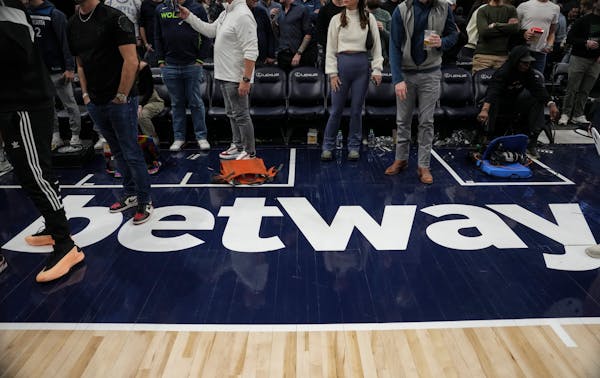In the first 2024 legislative hearing on legalized mobile sports betting Thursday, House lawmakers relayed extensive concerns about the potential socio-economic fallout from a massive expansion of gambling.
Rep. Dave Baker, R-Willmar, struck at the heart of the legalization bill when he asked, "Why is it so important to bring this to the mobile devices?" Baker pointed out that phones and gambling opportunities will be constantly available to everyone.
The bill's lead sponsor, Rep. Zack Stephenson, DFL-Coon Rapids, responded that Minnesotans can already easily gamble on their phones illegally. "What this bill is about is taking an illicit activity and trying to make it regulated, controlled and consumer-protected," he said.
Stephenson said the bill would establish safeguards, such as banning push notifications from the gambling platforms and establishing a three-hour waiting period after money is transferred to the gambling app from a bank account.
Following a discussion that focused mostly on the negative effect of legalization, the House Human Services Finance Committee advanced the bill on a split voice vote to the State and Local Government Committee. Thursday's session didn't touch on the core tension between the state's Indian tribes and two race tracks, and their representatives didn't speak to lawmakers.
The bill is far from a done deal and its prospects remain uncertain. The Senate has yet to begin public discussions of legalization this session, as advocates work behind the scenes to find an arrangement that satisfies the tribes — that likely would control the licenses and partner with a betting platform — and the tracks that want a piece of the action.
The only person to testify Thursday was Susan Sheridan Tucker, executive director of the Minnesota Alliance on Problem Gambling. Raising concerns. She found a receptive audience among committee members.
"It is a real addiction. It's a gambling disorder," and recognized by as a mental disorder by professionals, she said, adding that if the Legislature expands gambling, it needs to expand education and treatment efforts.
Gambling addiction touches the lives of many Minnesotans. According to state surveys taken in 2019 and 2022, some 250,000 adults and 6,000 high school students fall on the problem gambling spectrum, Sheridan Tucker said.
"Additional funding is absolutely necessary. We have a lot of work to do," Sheridan Tucker said, adding that with more funding, she'd launch a statewide education campaign about the dangers of gambling.
Minnesotans already spend $4 billion annually on legal gambling, a number she described as disturbing. "That's a lot of discretionary money," Sheridan Tucker said.
Her organization has three full-time staffers and one half-time staff member. The alliance has received about $500,000 to $700,000 annually in state funding from electronic pull tabs since 2014, she said. Stephenson's bill would direct a small percentage of sports betting revenue to addiction, education and recovery efforts.
Rep. Dawn Gillman, R-Dassel, is a fan. "I love the idea of sports betting. I do," she said with a smile, but wondered if it would hurt bingo operations throughout the state.
Treatment for compulsive gambling is free for Minnesota residents. The state has one of the nation's few residential treatment programs with Project Turnabout's Vanguard program in Granite Falls.
Baker, whose legislative district includes Project Turnabout, said he has seen good friends receive treatment there for gambling addiction and he's certain that mobile sports betting will lead to financial problems, family stress and increased domestic violence.
When sports betting is legalized, advertising in the state will soar tenfold, he said.
"My concern is with the young kids having it in the schoolrooms," he said. "We're bringing some really scary stuff to the devices. This is just a real philosophical challenge that we have to deal with here."
Baker said that just because it's already happening doesn't mean it should be legal and more accessible. "We're creating more addictive behaviors," he said. "We need to be talking about this the same way we talk to students about drug addiction, smoking, vaping, all of that."
Rep. Kristin Bahner, DFL-Maple Grove, said she's a realist who recognizes sports betting is likely to become legal. But she added: "What we haven't talked about is normalizing it and having it so prevalent and having it in front of our kids and our youth."
Former DFL Senate Majority Leader Kari Dziedzic dies of cancer at age 62

How the Star Tribune is covering the 2024 election

Fact check: Walz and Vance made questionable claims during only VP debate

In Tim Walz's home city, opposing groups watch him debate on the national stage

